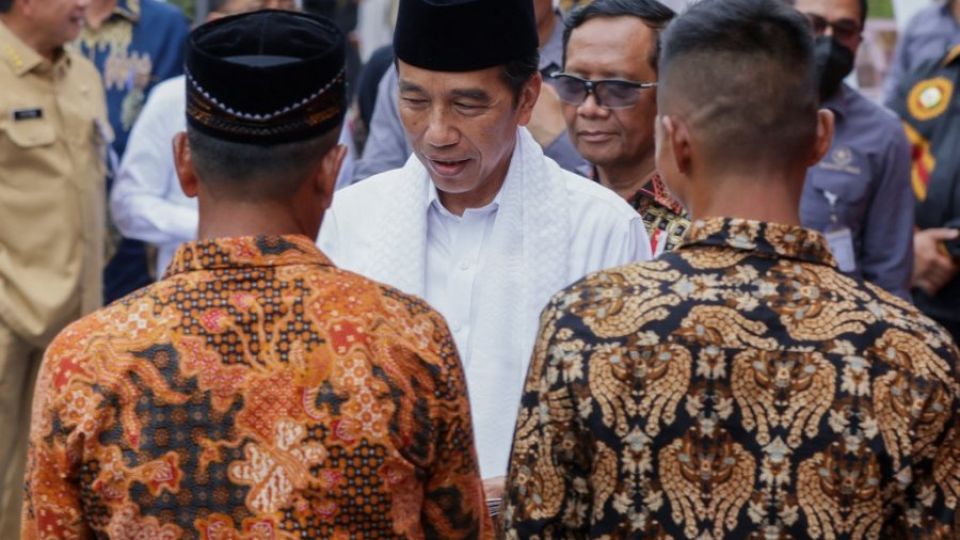July 5, 2023
JAKARTA – The program launched by President Joko “Jokowi” Widodo to settle past cases of gross human rights violations is missing the point over its failure to address the crucial issue of rewriting the official version of Indonesia’s history, say critics and victims’ families.
Rewriting the country’s history by including past human rights abuses was among the 11 recommendations issued in December by the government-sanctioned nonjudicial settlement team, led by veteran diplomat and human rights activist Makarim Wibisono. The team was formed in August 2022 after Jokowi announced a plan to resolve gross human rights violations through nonjudicial means.
The team’s first recommendation was for the government to acknowledge that the state was culpable for past human rights abuses and to express regret over 12 incidents, including the 1965 massacre, torturing civilians in Aceh during its military operation against the Free Aceh Movement (GAM) and the 1998 riots in Jakarta.
President Jokowi quickly followed up in January by expressing regret over the government’s responsibility in the 12 incidents.
The team’s second recommendation was for the government to reformulate the narrative on past atrocities by including the victims’ side of the story.
Read also: Amnesty International wants accountability for past atrocities
Coordinating Political, Legal and Security Affairs Minister Mahfud MD said last week that he had tasked another ministry with researching the past cases of gross human rights violations. However, he emphasized that the study, to be led by the Education, Culture, Research and Technology Ministry, would not affect the government’s policies.
“We welcome anyone who wants to write the history [of past atrocities],” Mahfud said on Friday. “But it is only an academic study. The results will not be [used as] references to issue policies because we will never find common ground, as history is ‘wild’.”
Victims and their families have repeatedly called on President Jokowi, who promised to resolve past cases of rights abuses during his 2014 campaign, to start the process of rewriting the official history on past atrocities because the current version tended to blame victims.
Among the victims are political exiles who were forced to remain overseas due to their alleged connection to the putsch on Sept. 30, 1965. They have also called on the government to disclose the truth behind the event, which led to Soeharto’s New Order regime revoking their citizenship for their supposed link to the abortive coup.
Maria Catarina Sumarsih, the mother of a student who was shot dead in November 1998 during an antigovernment protest in Jakarta, is among those who support rewriting the country’s history in line with the findings of the National Commission on Human Rights (Komnas HAM) on the 12 rights abuse cases.
Read also: Nonjudicial resolution not enough, victims say
Historian Ita Fatia Nadia said the government’s reluctance to rewrite history only showed it was not serious about resolving past gross human rights violations. Ita’s father, who was a member of the left-wing Indonesian Socialist Party, disappeared following the 1965 tragedy.
“We want the government to reveal the truth through historical clarification,” she said.
The current historical narrative referring to the past rights abuses was dominated by those in power and neglected the voices of victims, said historian Baskara T. Wardaya from Sanata Dharma University in Yogyakarta. A more balanced narrative would require historians to incorporate victims’ stories and provide a broader context on how the rights violations could have occurred, he said.
Still, Baskara expressed appreciation for the government’s move. Though it was not perfect, it could open the door to different historical perspectives.
“What’s important is that we start learning from the past and not deny [past atrocities],” he said.


